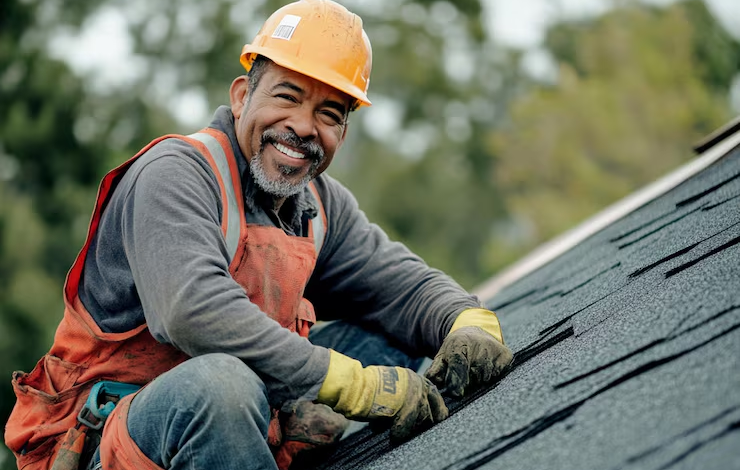How to Find a Qualified Roofer in Los Angeles: A Homeowner’s Guide

Your roof keeps everything inside your house safe and dry. When problems start showing up, it gets stressful fast. Maybe you noticed water stains on the ceiling. Or shingles are scattered across your lawn after last week’s wind. You need someone to fix it, but the wrong choice here can cost you thousands more than the actual repair.
The city of Los Angeles has no shortage of roofing contractors. The hard part is figuring out who actually knows what they’re doing. Some companies do excellent work and stand behind it. Others take your deposit and either disappear or do such poor work that you’re calling someone else to fix their mistakes within a year.
Where do you even start looking for a roofer in Los Angeles? Most people check online reviews or ask around the neighborhood. Both can help, but they’re really just a starting point. A contractor with great reviews might send a different crew to your house. Your neighbor’s experience might have been with workers who don’t even work there anymore.
Verify Their License Status
California law says roofing contractors need a C-39 license to work legally. This matters more than most homeowners realize. Getting licensed means passing exams, proving experience, and carrying insurance. You can look up any license number on the Contractors State License Board website to see if it’s current and valid.
Hiring someone without a license is asking for trouble. They might charge less up front because they’re skipping all the legal requirements. When something goes wrong, and it often does, you have zero protection. No insurance to file against. No board to complain to. You’re just stuck with a roofer in Los Angeles who won’t return your calls.
Always ask for the license number before you discuss your project details. A real professional will share this right away. Anyone who acts weird about it or says they’ll get it to you later should be removed from your list immediately.
See also: Dressing with Intention: How Clothing Shapes Our Everyday Life
Match Experience To Your Roof
Different roofing materials need different skills. Someone great with asphalt shingles might struggle with tile. Metal roofing requires techniques that don’t apply to flat roofs. Los Angeles homes have all kinds of roofing styles, and each one has its own tricks.
Ask how many years they’ve worked with your specific roof type. Request photos from jobs similar to yours. Generic roofing experience doesn’t count for much when the materials and methods vary so widely. You want someone who has done your type of roof dozens of times, not someone figuring it out as they go.
Southern California weather creates specific challenges, too. The heat is intense in summer. Rain can be heavy when it finally comes. Earthquakes happen. A contractor who understands local conditions knows which materials last and which installation methods prevent the common failures seen around here.
Written Contracts Prevent Problems
Get everything in writing before any work starts. A good contract lists the exact materials, the timeline, how payments work, and what the warranty covers. Verbal promises are worthless when you’re trying to prove someone didn’t do what they said they would.
Read the whole thing carefully. Watch out for vague language like “quality materials” or “proper installation.” Those phrases mean nothing specific. You want brand names, product model numbers, and detailed descriptions of the work. Specifics eliminate confusion later.
How they want payment tells you a lot. Professional contractors ask for a reasonable deposit, then the rest when the job is done right. Anyone demanding most of the money up front is either broke or planning to take off. Never pay in full before the work is finished. That’s just common sense, but people ignore it all the time.
Talk To Past Customers
References matter more than any marketing material. Ask for three recent customers, ideally from jobs finished in the last six months. Older references might be from different crews or back when the company operated differently.
Call these people and ask real questions. Did workers show up when they said they would? Was the site cleaned up each day? How did they handle unexpected problems? Did the final bill match the estimate? These details reveal whether the contractor is reliable or just good at getting signatures.
Drive by some finished projects if you can. Pictures on a website can hide a lot. Seeing the actual roof up close shows you the real quality of their work. Look at the flashing details and how straight the lines are. Craftsmanship shows in person.
Spot The Warning Signs
Some red flags are obvious once you know what to look for. Contractors knocking on doors claiming they have extra materials. Companies that want to handle your insurance claim for you. Businesses with no real address or phone numbers that change constantly.
High-pressure sales tactics are another bad sign. Real professionals don’t rush you into decisions. Your roof either needs work now, or it can wait. Phrases like “special price expires today” or “we’re only here this week” mean they’re desperate for work. Good contractors stay busy without playing those games.
Trust what your gut tells you during meetings. If someone brushes off your questions or seems more interested in getting paid than understanding your situation, they’ll probably let you down once the project starts. Communication style before the job predicts communication style during the job.
Making The Right Choice
Finding a qualified roofer in Los Angeles takes effort and patience. Rushing leads to expensive regrets that careful research would have prevented. Your roof protects everything you own. It’s not the place to take chances on unproven contractors or deals that seem too good to be true.
Start by checking licenses online. Verify insurance through direct contact with providers. Call references and ask detailed questions. Get written estimates from at least three contractors. Compare everything, not just the bottom line price.
The right contractor answers questions without getting defensive. They explain things clearly and provide documentation without you having to ask twice. They know Los Angeles building codes and understand how the climate affects different roofing materials. They treat your home the way they’d want someone treating theirs.




